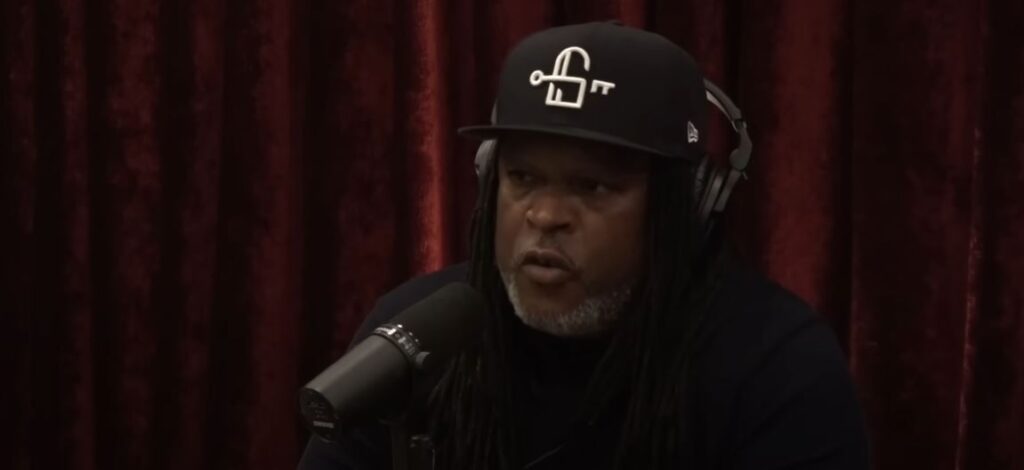
Shaka Senghor’s personal and financial journeys are remarkably similar in that they are both unexpected, out of the ordinary, and incredibly transforming. His estimated net worth, which ranges from $1 million to $5 million, reflects not only his income but also the extraordinary worth of storytelling, resiliency, and societal impact. Senghor’s wealth comes from the laborious reconstruction of a life that was all but destroyed by incarceration, in contrast to tech tycoons who amass enormous fortunes through capital or code.
His ascent was sparked by his memoir Writing My Wrongs: Life, Death, and Redemption in an American Prison, which changed public discourse on mass incarceration and became a New York Times bestseller. His financial position was established by the book’s expansion into speaking engagements and royalties. That trajectory was broadened by his second book, Letters to the Sons of Society, which established him as a writer who could combine authority and vulnerability.
| Detail | Information |
|---|---|
| Full Name | James White (professionally known as Shaka Senghor) |
| Date of Birth | June 21, 1972 |
| Age | 53 (as of 2025) |
| Profession | Author, Speaker, Resilience Expert, Advocate |
| Estimated Net Worth | $1 million – $5 million (various reports) |
| Income Sources | Book royalties, speaking engagements, corporate consulting, investments |
| Notable Works | Writing My Wrongs (2016), Letters to the Sons of Society (2022) |
| Former Role | VP of Corporate Communications at Navan (TripActions) |
| Major Recognition | Oprah’s SuperSoul 100, NAACP’s Great Expectations Award |
When his speaking engagements are taken into account, the financial picture becomes more apparent. For his voice, Fortune 500 companies, nonprofits, and universities pay hefty fees, sometimes as much as $25,000 per keynote. He speaks not just as a well-educated scholar but also as someone who has experienced a reality that most people only read about in the news. He stands out in a crowded field of professional speakers thanks to his incredibly obvious authenticity.
His contributions to corporate America and technology are equally noteworthy. Senghor joined the executive team at Navan (formerly TripActions) as Vice President of Corporate Communications, where he combined his support of diversity and inclusion with business strategy. This phase of his career increased his pay and credibility by placing him next to prominent people who offer advice on workplace equity. He also entered the venture capital space through collaborations with companies such as Andreessen Horowitz, investigating investments that are especially inventive for someone whose life started outside of boardrooms.
His narrative illustrates how net worth can function as a cultural indicator in addition to being a monetary indicator. Senghor’s wealth is a reflection of the increasing demand for voices that can speak to leadership, justice, and resiliency in ways that are relevant to a variety of industries. His reputation was greatly enhanced when Oprah Winfrey decided to include him on her SuperSoul 100 list. Oprah’s fame increased his cultural cachet and made it easier for him to land high-profile speaking and consulting engagements by placing him alongside celebrities like Lin-Manuel Miranda and Ava DuVernay.
Another factor that converts visibility into financial strength is the impact of his TED Talk, which has been viewed by over 1.8 million people. Senghor has used TED’s reach to make sure his story is both widely heard and financially rewarding, much like Brené Brown, who made a fortune from her studies on vulnerability.
It is impossible to avoid comparisons. Famously overcoming addiction and legal issues, Robert Downey Jr. rose to become one of Hollywood’s highest-paid actors. Jay-Z turned his personal experiences into a multibillion-dollar business. Even though Senghor’s financial story doesn’t come close to those astounding numbers, it is incredibly symbolic. His ability to move from a jail cell to corporate stages demonstrates how society is progressively becoming more accepting of second chances, albeit cautiously.
But durability is the foundation of his wealth. Recurring revenue streams from book royalties, keynote addresses, and consulting ensure stability even as the public discourse on justice changes. By combining practical tools with personal insights, his upcoming book How to Be Free: A Proven Guide to Escaping Life’s Hidden Prisons promises to broaden his portfolio and improve his standing in the publishing and speaking circuits.
His financial success has important societal ramifications. Every dollar he makes shows that society can reward change instead of punishing mistakes forever. Given the prevalence of mass incarceration—more than 600,000 people are released from prison each year—Senghor’s story offers a unique illustration of what can happen when opportunity and willpower come together. His wealth is social proof as well as personal capital.
His message is particularly effective in corporate America. Senghor adds credibility that cannot be faked in a time when diversity and inclusion are essential. By bridging the gap between principle and profit, his consulting work demonstrates to executives that resilience is a corporate asset as well as a human quality.
Considering the lessons it conveys, his wealth is surprisingly accessible to audiences. Senghor’s wealth feels achievable—rooted in diligence, ingenuity, and tenacity rather than privilege—in contrast to billionaires whose wealth seems far away and unreachable. For young people dealing with trauma or systemic barriers, his story is especially helpful because it provides evidence that setbacks do not define futures forever.
In many respects, Shaka Senghor’s wealth is more about the millions he has inspired than the millions he has amassed. It represents an economy of hope in which resilience creates value and forgiveness creates opportunity. His career, which is incredibly diverse and includes activism, technology, literature, and entrepreneurship, guarantees that his financial development will always change.
